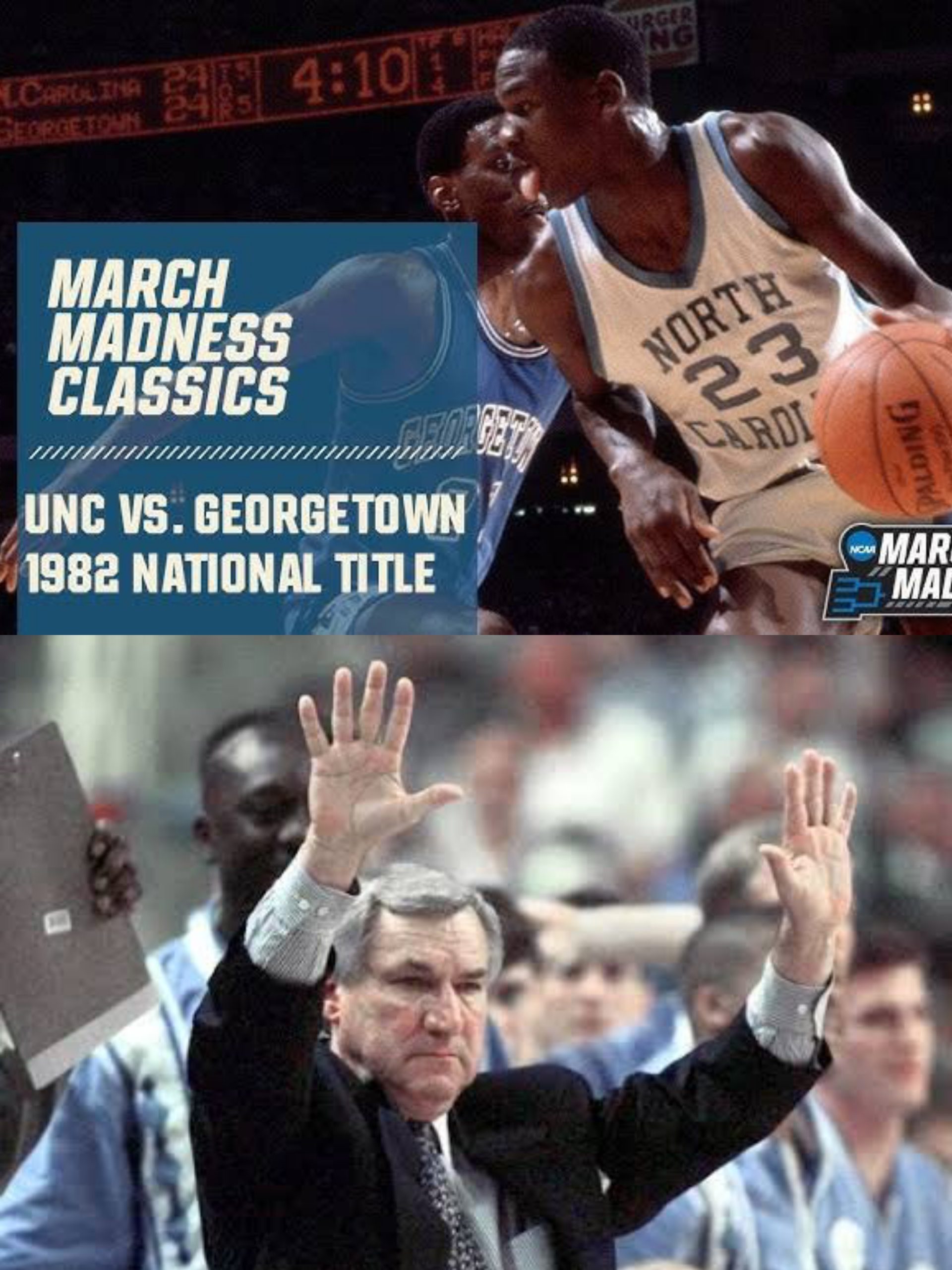Dean Smith’s Brilliant but Controversial Strategy at North Carolina — The Game-Changing Tactic That Left Rivals Helpless, Sparked Outrage, and Forced a Rule Change Still Felt in College Basketball Today
When the history of college basketball is told, Dean Smith’s name stands out not only for his integrity, leadership, and championships, but also for a single strategy that shook the very foundation of the game. Known as the Four Corners Offense, this approach was both genius and infuriating — a weapon that gave North Carolina control over games while frustrating opponents and fans alike. It became so dominant that it forced the NCAA to rewrite the rules of basketball itself.
The Birth of a Controversy
Smith did not invent the Four Corners, but he perfected it. The idea was simple in structure, yet devastating in execution: four players spread out into the corners of the half-court while the point guard, usually a skilled ball handler, dribbled in the middle. By spacing the floor this way, defenses were forced to come out of their compact formations, leaving gaps that North Carolina could exploit. The result was often a high-percentage shot, a drawn foul, or — most commonly — long stretches of stalled play where the Tar Heels simply held onto the ball.
This delay tactic wasn’t just a trick. It was a philosophy. Smith used it to control tempo, dictate pace, and protect slim leads. For his players, it was a mental and physical test of discipline. For opponents, it was a nightmare that left them chasing the game without ever touching the ball.
The Defining Moment: 1982 ACC Championship
The most famous display of the Four Corners came during the 1982 ACC Championship Game against Virginia, led by 7-foot-4 superstar Ralph Sampson. With a narrow lead late in the game, Smith instructed his team to spread out and run the Four Corners. What followed was one of the most polarizing sequences in college basketball history: North Carolina held the ball for more than seven minutes with almost no offensive action.
Fans groaned, opponents fumed, and even neutral observers were stunned. But the plan worked. UNC secured a 47–45 victory, frustrating Virginia while sending a clear message — the Four Corners was nearly impossible to counter.
The Outrage and the Aftermath
The strategy may have won games, but it also sparked outrage. Critics argued it ruined the spirit of competition, turning exciting contests into drawn-out staring matches. Broadcasters complained of dead air, fans felt cheated out of action, and rival coaches demanded change.
The uproar reached such a pitch that the NCAA was forced to act. In 1985, just three years after that fateful ACC Championship, college basketball officially introduced the shot clock — initially set at 45 seconds, later reduced to today’s 30. Its purpose was simple: prevent another Dean Smith-style freeze-out from stalling the game.
Legacy of a Game-Changer
Looking back, Smith’s Four Corners remains a paradox. On one hand, it showcased his brilliance as a tactician, giving his teams a psychological and strategic advantage that often carried them deep into March. On the other, it exposed a flaw in the rules that cried out for reform.
Even Smith himself acknowledged the controversy. In later years, he admitted he wasn’t surprised by the shot clock’s arrival. In fact, he welcomed it, recognizing that while the Four Corners was effective, the game of basketball was better served with more action and fairness.
Still Felt Today
Nearly four decades later, the fingerprints of Dean Smith’s strategy remain visible. Every possession in today’s college basketball, shaped by the 30-second shot clock, owes its existence to that era of delay offenses. Smith may not have set out to change the game’s rules, but in his pursuit of victory, he left a legacy that reshaped college basketball forever.
For North Carolina fans, the Four Corners is a badge of pride — a reminder of Smith’s genius. For opponents, it is a memory of frustration. For the sport itself, it was the tipping point that pushed college basketball into the modern era.
And so, Dean Smith’s brilliant but controversial tactic lives on — not in the plays we see today, but in the rules that govern the game itself.





















